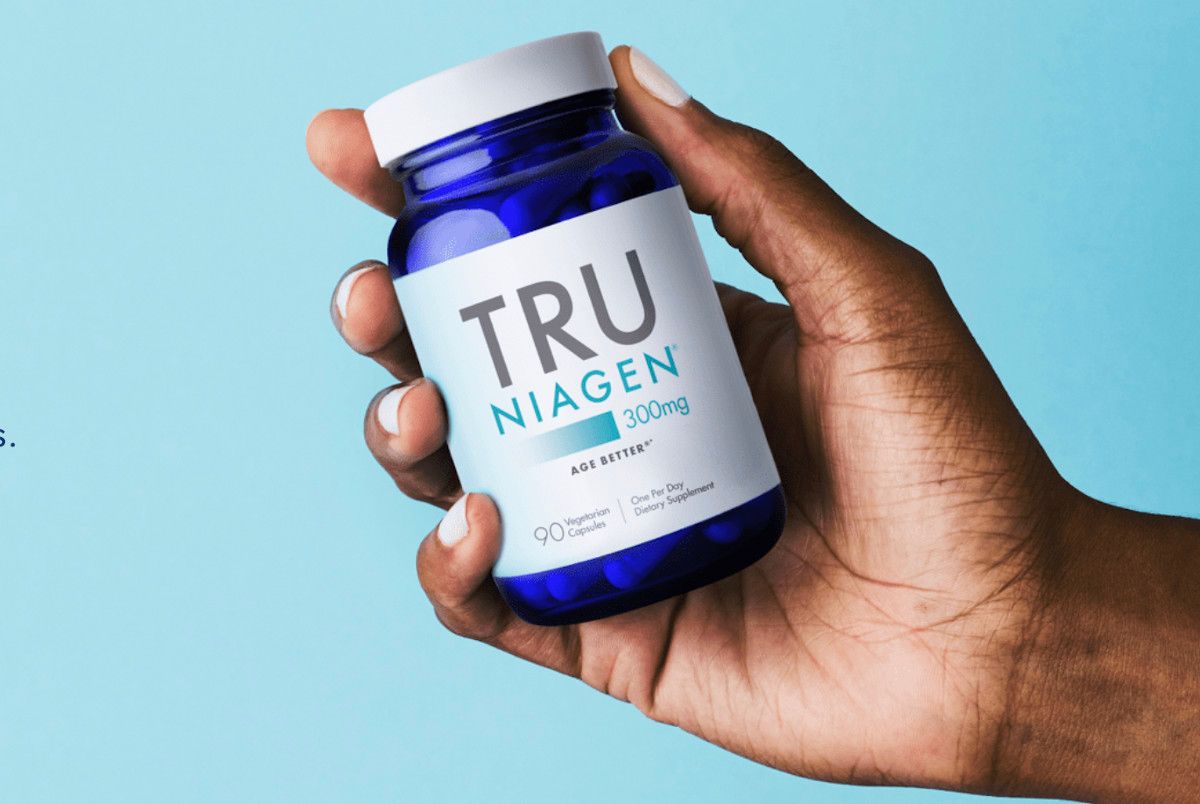Anti-aging Supplement is "Pure Hype," Short Seller Claims

You may not know what NAD+ is but a supplement called Tru Niagen claims it can increase it. And that’s good, we’re told, because NAD+ can supposedly help your body resist the effects of aging.
As you age, “you face a natural decline in NAD+ levels. Tru Niagen supports cellular function and metabolism to maintain overall health and well-being,” the supplement’s manufacturer claims. Facebook founder Mark Zuckerberg is among the investors, so everything must be above board, right?
Wrong, according to short selling firm J Capital. “We have come to the conclusion that the company is pure hype, dished up by an Oceans 11 of stock promoters,” J Capital analyst Anne Stevenson-Yang wrote in a report quoted by the New York Post.
It’s not unusual for short sellers to throw rotten apples at booming companies but J Capital’s comments about Tru Niagen and its manufacturer, ChromaDex, are particularly harsh.
“CDXC promotes its single product, a health supplement, with iterative press releases that boost share price long enough for insider sales before the vaunted advantages contained in those press releases quietly disappear,” J Capital’s report alleges.
ChromaDex says it’s “dedicated to healthy aging,” has an enviable list of investors, including Zuckerberg and Li Ka-shing, a Chinese billionaire. It recently announced that it would be selling Tru Niagen at thousands of Walmart locations, a claim J Capital says it also made earlier this year.
ChromaDex has also announced partnerships with GNC and Nestle but J Capital researchers say they were unable to find Tru Niagen in a single GNC store and that the Nestle partnership generated just a few hundred thousand dollars.
What is NAD+?
Just what is this NAD+ that is at the center of Tru Niagen’s claims? It’s Nicotinamide Adenine Dinucleotide and it’s thought to be important in DNA cell repair and telomere maintenance, according to a U.S. Food and Drug Administration pharmacy compounding committee review.
NAD+, a naturally occuring substance found in every living mammal, has been used intravenously, in conjunction with other drugs, since the 1960s to assist in drug and alcohol withdrawal.
It exploded onto the supplement market after a 2015 Harvard study in which researchers injected an NAD+ molecule into two-year-old mice. After a week, they found that the tissues of the mice resembled those of a six-month-old. Researchers concluded that “this would be like a 60-year-old converting to a 20-year-old.”
B3 instead?
But while it’s easy to find NAD+ supplements on Amazon and just about everywhere else, the watchdog publication Supplement Police says they’re of dubious value.
“Most of these supplements … are little more than a flashy name: they add the term ‘NAD+’ to the packaging and people buy the supplement thinking it’s a cure for aging,” the publication says. “In reality, many of these supplements are absurdly under-dosed. Most legitimately contain NAD+, but they have such low amounts of NAD+ that it won’t make any noticeable difference on your body.”
There is an alternative that may be cheaper and more effective, Supplement Police advises: “Alternatively, use vitamin B3: there’s a form of vitamin B3 that acts as a precursor to NAD+. Specifically, the type of vitamin B3 called nicotinamide riboside has been found to increase NAD+ levels.”
In 2016, a clinical trial of nicotinamide riboside (NR) at the University of Iowa found that the compound is safe for humans and increases levels of a cell metabolite that is critical for cellular energy production and protection against stress and DNA damage. You can read more about nicotinamide riboside on the National Institutes of Health site.
So should you rush out and stock up on B3? Or NAD+? It’s entirely up to you. Supplements are not regulated by the FDA, so unlike prescription drugs, there is no guarantee of safety or efficacy. Before you do anything, check with your doctor and be sure to tell him or her about all other drugs, including supplements, you’re taking.
